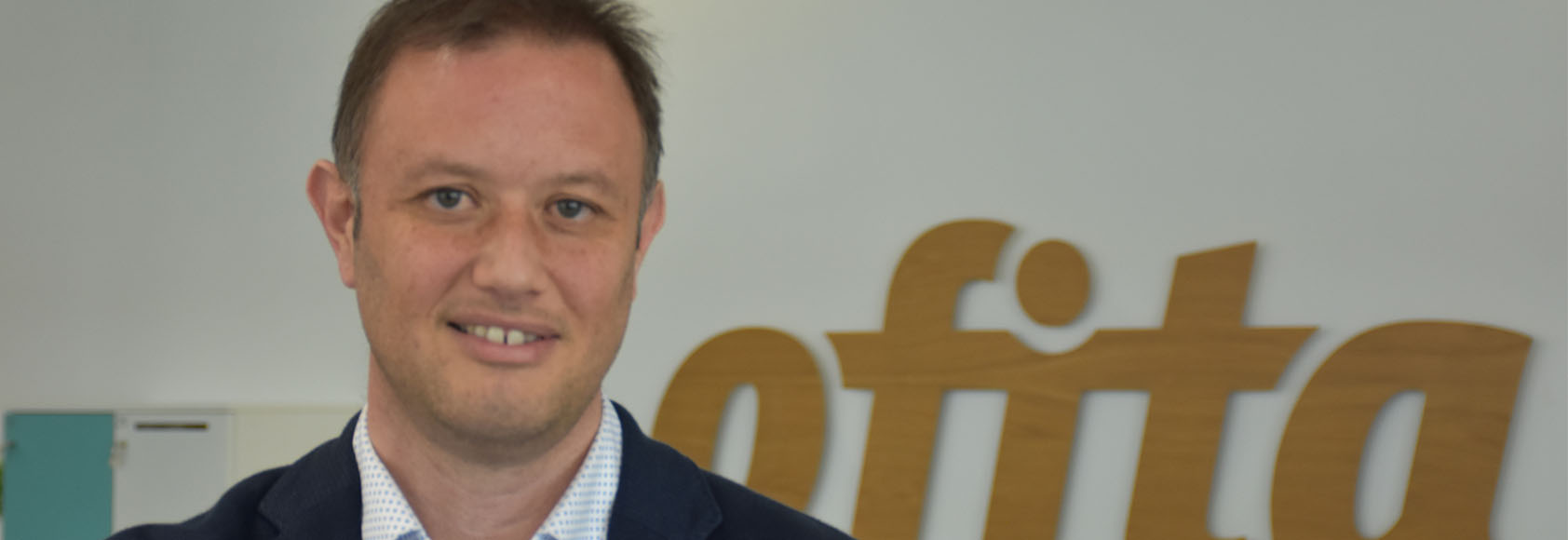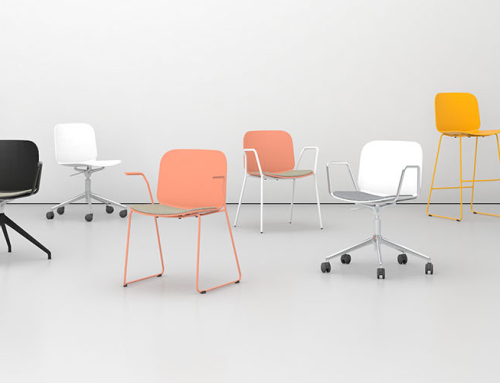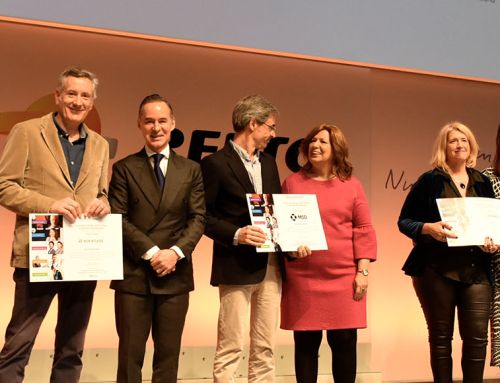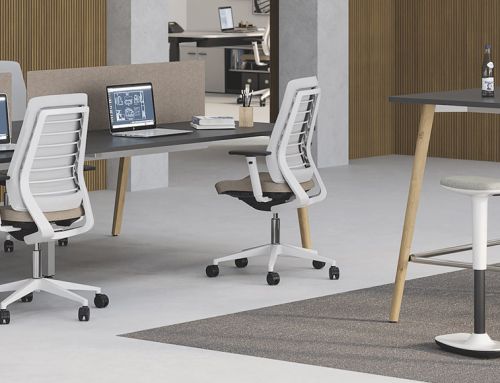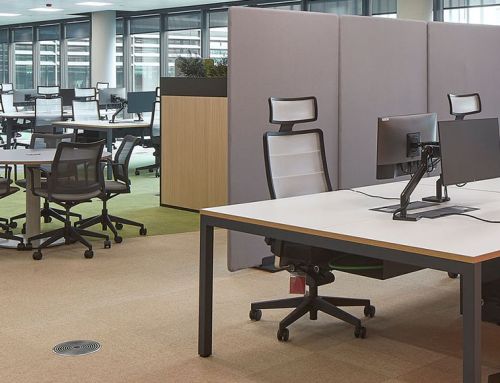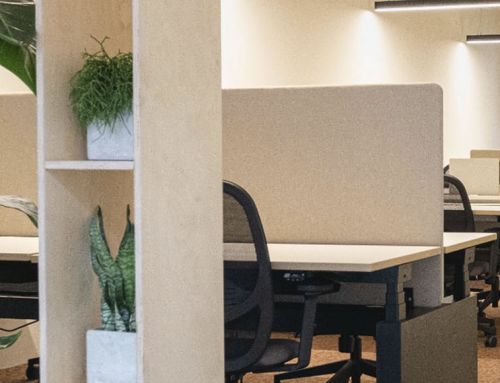Jonatan Molina, VP of Sales at Ofita, has been one of the panelists of the “New work modalities after the pandemic” meeting, organized by the French Chamber of Commerce in Barcelona (CCI France Espagne).
Wojo, Ofita, Daysk and Colonial have shared impressions about the challenge of teleworking and how this modality is projected beyond the pandemic. In addition, they have analyzed the evolution of the job demand, the new office search criteria and the new requirements that companies ask for, among other topics.
“The pandemic has accelerated the transformation of workspaces”
According to Jonatan Molina, office evolution was already real before the pandemic; in other words, companies were transforming their spaces, giving greater prominence to collective areas, driven by a change in culture, structures and horizontal leadership styles. “What the pandemic has done is greatly accelerate this trend.”
The office, the space for innovation
“The office has become the link between companies and their teams; it is the bond with colleagues and with the brand”, he affirms. “It is the space for creativity, for innovation and for transferring information, therefore, what is growing the most are collaboration spaces, both formal and informal.”
Regarding the new role of the office, Jonatan Molina points out that productivity grows with teleworking, according to several studies, however, innovation falls. “When we are not together and collaborating, innovation slows down.” “For this reason, large companies are bringing their staff back to the workplace, even in hybrid models,” he adds.
Innovation is more easily generated when we are working as a team, and companies are aware of it. That is why -explains Jonatan Molina- the projects that have been born in these months have in common the reduction of operational positions that are replaced by agora-type spaces and meeting areas, open and closed. “Another of the most demanded spaces are those for individual concentration, especially for all those people who do not have a suitable area in their home to concentrate.”
More humanized offices, a rising trend
As Jonatan Molina has explained, spending so much time at home has highlighted the importance of incorporating ergonomic office furniture at home to work in a healthy way.
Although teleworking is considered one of the best prevention measures against the spread of the virus, it is also true that working from home can lead to exposure to other negative situations for our health, especially ergonomic and psychosocial risks, such as derivatives of sedentary lifestyle, muscular problems derived from bad posture caused by chairs not suitable for sitting for hours or technological stress.
To meet this demand for ergonomic home office furniture, Ofita, for example, had to open a store on its website, aimed at a market niche with which it had never worked, as explained by its VP of Sales.
And not just at home. This search for ergonomics and to create much more humanized environments for work is a growing trend also in the design and equipment of post-pandemic offices, “which translates not only into the acquisition of ergonomic chairs; the demand for tables that can be lifted in height, for example, is also growing significantly”.
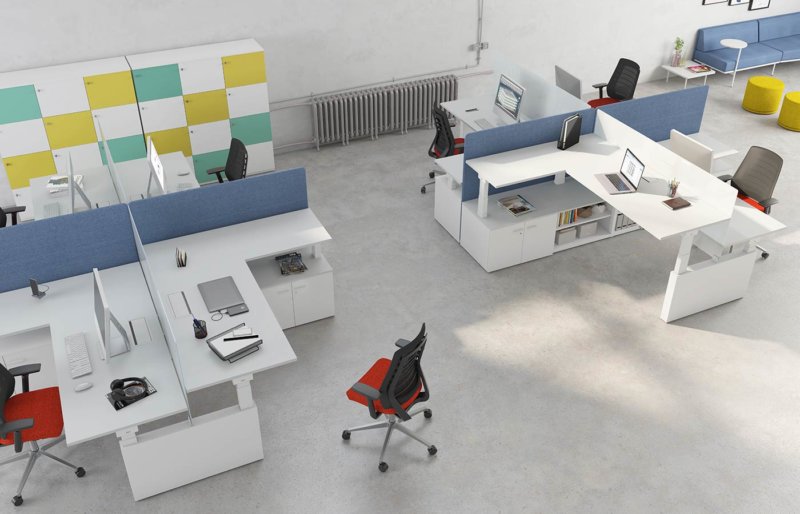
Ofita Multilevel lift table
Albert Alcober, Colonial business director, clearly agrees with this assessment: “The pandemic has brought to companies a concern to improve the working conditions of their employees, regardless of whether they are reaching agreements to combine face-to-face work with other flexible modalities.”
In his opinion, the younger generations are pushing back to the offices “because that talent wants to network and demonstrate their contribution to the company.”
Along the same lines, Jonatan Molina has commented that the new generations that enter the labor market also have the need to train, “and that learning arises spontaneously when they collaborate with their colleagues”. In his opinion, the youngest are the ones most predisposed to going to the office, “also because they need a space to create their personal brand.”
According to Nicolas Lebeau, VP Sales Spain at Wojo, in the new paradigm “the well-being of talent will be taken into account much more, for that reason, companies are looking for spaces that are not so much like the office, with many hotel or residential references”. “Going to the office means commitment, collaboration and innovation.”
For his part, Julien Palier, CEO and CoFounder of Daysk, has introduced into the debate the important role of technology in the challenge of facilitating and optimizing this new flexibility, and the growing role of the “third space” as an alternative to the office and the home office. In his opinion, “there is a radical change in how we relate to spaces; we need meeting points”. A clear example is the Work Café Santander, a collaborative space open to all, away from the traditional concept of a bank branch.
